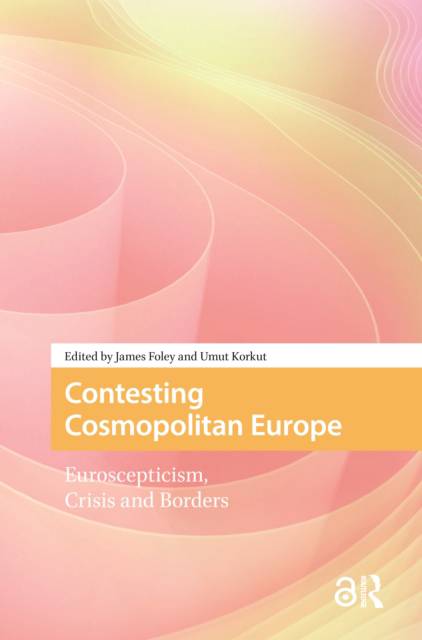
Bedankt voor het vertrouwen het afgelopen jaar! Om jou te bedanken bieden we GRATIS verzending (in België) aan op alles gedurende de hele maand januari.
- Afhalen na 1 uur in een winkel met voorraad
- In januari gratis thuislevering in België
- Ruim aanbod met 7 miljoen producten
Bedankt voor het vertrouwen het afgelopen jaar! Om jou te bedanken bieden we GRATIS verzending (in België) aan op alles gedurende de hele maand januari.
- Afhalen na 1 uur in een winkel met voorraad
- In januari gratis thuislevering in België
- Ruim aanbod met 7 miljoen producten
Zoeken
Contesting Cosmopolitan Europe
Euroscepticism, Crisis and Borders
€ 198,45
+ 396 punten
Omschrijving
The project of European integration has undergone a succession of shocks, beginning with the Eurozone crisis, followed by reactions to the sudden growth of irregular migration, and, most recently, the coronavirus pandemic. These shocks have politicised questions related to the governance of borders and markets that for decades had been beyond the realm of contestation. For some time, these questions have been spilling over into domestic and European electoral politics, with the rise of "populist" and Eurosceptic parties. Increasingly, however, the crises have begun to reshape the liberal narratives that have been central to the European project. This book charts the rise of contestation over the meaning of "Europe", particularly in light of the coronavirus crisis and Brexit. Drawing together cutting edge, interdisciplinary scholarship from across the continent, it questions not merely the traditional conflict between European and nationalist politics, but the impact of contestation on the assumed "cosmopolitan" values of Europe.
Specificaties
Betrokkenen
- Uitgeverij:
Inhoud
- Aantal bladzijden:
- 208
- Taal:
- Engels
- Reeks:
Eigenschappen
- Productcode (EAN):
- 9789463727259
- Verschijningsdatum:
- 1/08/2022
- Uitvoering:
- Hardcover
- Formaat:
- Genaaid
- Afmetingen:
- 156 mm x 234 mm
- Gewicht:
- 467 g

Alleen bij Standaard Boekhandel
+ 396 punten op je klantenkaart van Standaard Boekhandel
Beoordelingen
We publiceren alleen reviews die voldoen aan de voorwaarden voor reviews. Bekijk onze voorwaarden voor reviews.








